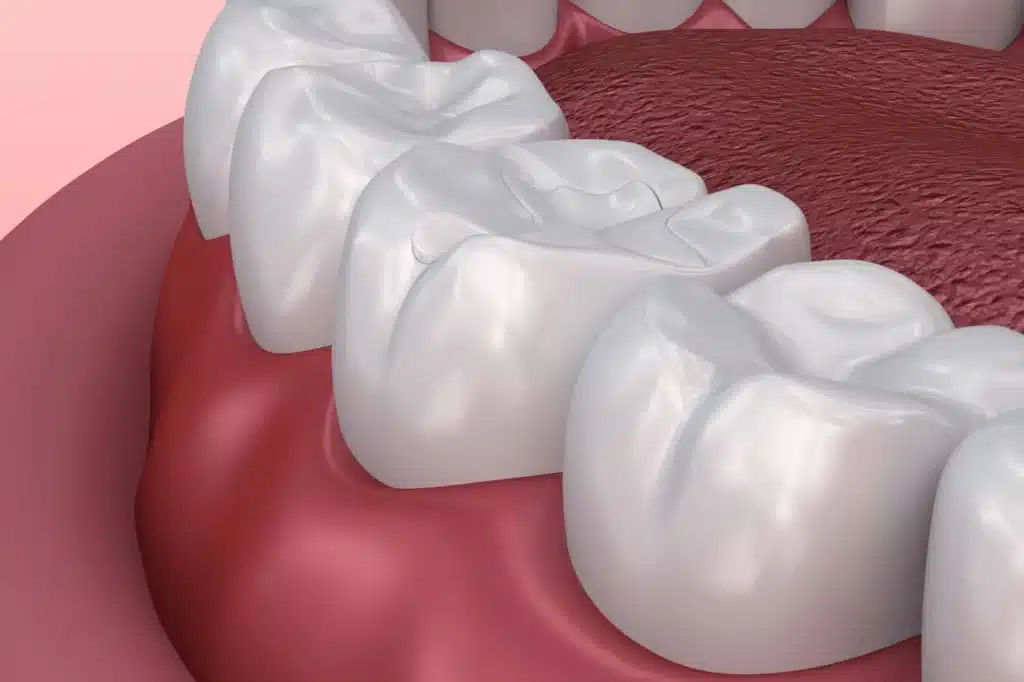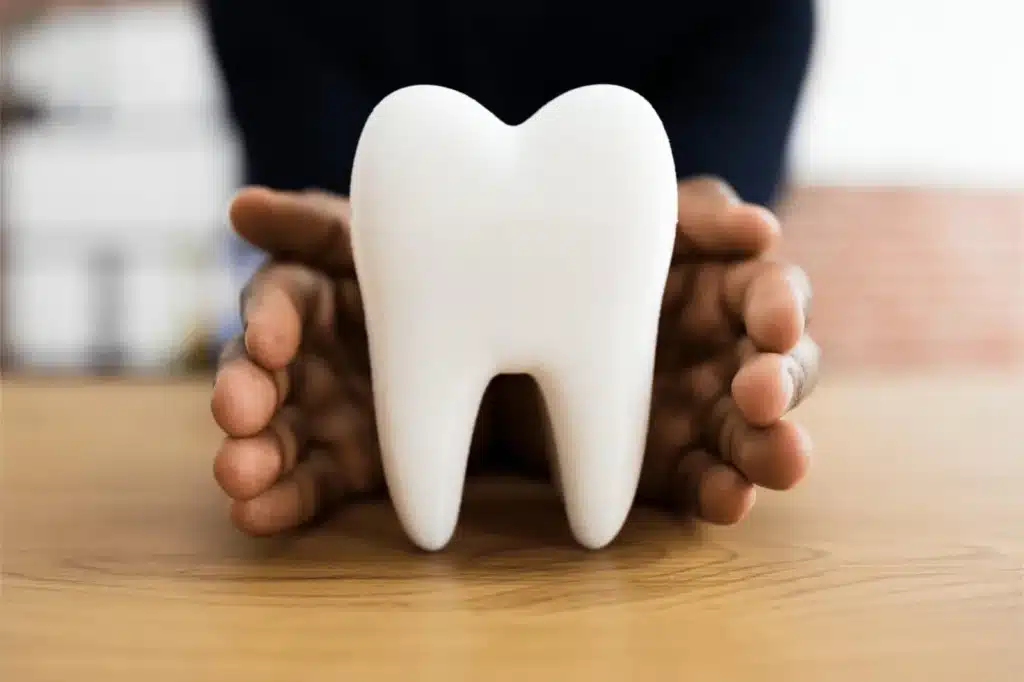Tooth enamel protects your teeth and prevents many oral infections. But it can get damaged due to many reasons. Read more to know.
Tooth Enamel
Tooth enamel is like a shield for your teeth. It’s the tough outer layer that covers the part of your tooth you can see. This shield is the hardest part of your body, even more rigid than your bones.
But, as strong as enamel is, it can get damaged over time. Dental plaque, acids from your food, and mouth bacteria can all harm your enamel.
Role of Enamel
The main job of tooth enamel is to keep your tooth safe. It shields the inside parts of your tooth from:
- Tooth decay (preventing cavities).
- Wear and tear (erosion).
- Infections.
- Sensitivity to things like hot, cold, and sweet stuff.
What is Enamel Made of?
Tootrh enamel is mostly made up of calcium and phosphorus. These minerals, which make up 95% of enamel, stick together to form super tiny solid crystals. The remaining part of the enamel is water (4%) and proteins (1%).
The tooth enamel is see-through. The layer underneath it, called dentin, can be different colors, like grayish-white or light yellow. Together, enamel and dentin are what give your teeth their unique color.
Causes of Enamel Erosion
There are a few things that can lead to the loss of tooth enamel on your teeth, such as:
- Everyday use and wear and tear from things like brushing and chewing.
- Grinding or clenching your teeth.
- Drinking sugary drinks like soda and fruit juice.
- Eating lots of sugary or starchy foods.
- Having acidic foods like sour candies.
- Taking certain medicines.
- Having a dry mouth.
- Dealing with acid reflux or tummy issues.
- Bulimia, a condition where people make themselves vomit, can harm enamel.
- Some folks have thinner enamel because of their genes.
What Happens if the Enamel is Gone?
When your tooth enamel is gone, the inside of your teeth is exposed to the air and what you eat and drink. This makes your teeth more likely to get cavities. Plus, without enamel, your teeth can become sensitive to hot, cold, and sweet things. They might also get stained more easily.
If you have small cavities, dentists can fix them. But if you don’t get them treated, even tiny cavities can become significant and cause painful infections and tooth abscesses.
If your enamel is completely gone, it won’t come back. But your dentist can cover your tooth with a dental crown to protect it from further damage.
Cure
You can’t make new tooth enamel grow back, but dentists can repair damaged enamel using fluoride treatments. Fluoride helps to strengthen and rebuild the outer layers of your teeth.
Fluoride Treatments
Fluoride is a natural mineral found in many foods and water. Dentists can give you fluoride in two ways: as pills or by applying it directly to your teeth. This fluoride treatment helps your tooth enamel get stronger, making your teeth less likely to get cavities and other damage.
How to Take Care of Enamel?
To make sure your enamel stays strong and healthy, follow these simple tips:
Brush your Teeth Twice a Day: This helps remove plaque, tartar, and bacteria on your teeth and lowers the risk of enamel damage. If you need help brushing correctly, ask your dentist to show you.
Floss once a Day: Remember to clean between your teeth because that’s where stuff likes to hide.

Use Toothpaste with Fluoride: Look for toothpaste with fluoride in it. It helps keep your enamel strong and healthy. Make sure it has the ADA Seal of Acceptance for safety and effectiveness.
Use a soft-bristled Toothbrush: Avoid brushes with medium or stiff bristles because they can wear down your enamel. Be gentle when you brush, even if you use a soft brush.
Drink Acidic Drinks through a Straw: This reduces how much your teeth touch those drinks.
Stay Hydrated: Drinking water washes away bad stuff from your teeth. It also helps if you have a dry mouth.
Get Treatment for other Health Issues: If you have problems like dry mouth, acid reflux, or bulimia, treat them.
Chew Sugar-free Gum: It makes more spit, which is good for your enamel. Look for gum with xylitol to help prevent cavities.
Ask about Sealants: These are like tiny raincoats for your teeth. They keep the bad stuff away from your enamel.

See your Dentist Regularly: Regular cleanings and check-ups with your dentist will keep your teeth and gums healthy.
Conclusion
The blog guides you on the importance of tooth enamel in dental health. Avoid acidic foods and take care of oral cleanings. Contact Dentalsway for more details on how you can prevent enamel.


